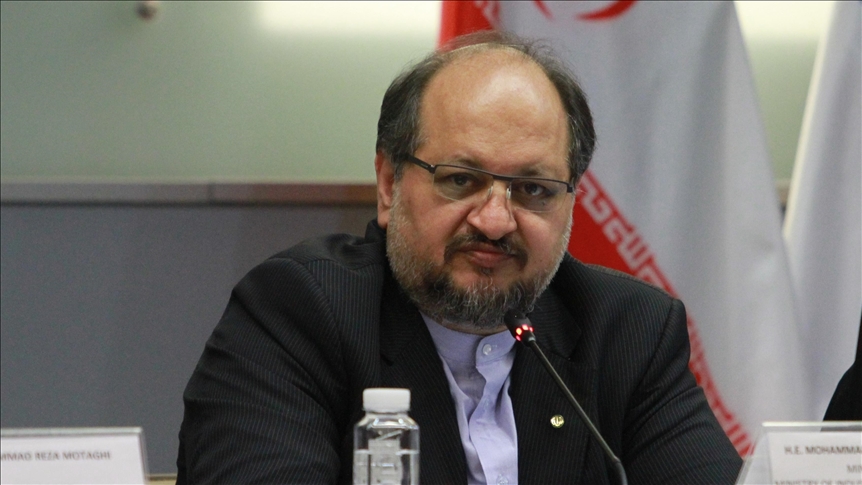ASBAREZ: 'U.S. FEDERAL COURT FINDS TURKEY WAS SERVED WITH LAWSUIT DESPITE ANKARA’S PROTEST TO STATE DEPT.'
Download PDF :


Asbarez (8 April 2021)
A lawsuit filed against the Republic of Turkey will proceed, after the U.S. District Court for the Central District of California held that Turkey was properly served.
The case, Ghazarian et al. v. Republic of Turkey, was filed almost two years ago by 89-year-old Barkev Ghazarian and his son Garo B. Ghazarian. Turkey has actively sought to reject service in the matter, despite repeated service attempts made through U.S. statutorily-mandated processes.
On October 13, 2020, Kerkonian Dajani LLP, counsel in the matter, successfully caused service to be effected on Turkey by diplomatic channels through the U.S. State Department. On November 20, 2020, Turkey returned the court documents to the State Department with a diplomatic note stating that Turkey expects the U.S. District Court to refrain from exercising jurisdiction over the matter and even directing the U.S. State Department to share this information with the District Court “who should summarily dismiss these proceedings”.
Click for more
*Photo: "Barkev Ghazarian, 89, is a plaintiff in the case against the Republic of Turkey that alleges violation of international law, breach of fiduciary duties, elder abuse, infliction of emotional distress, and interference with inheritance" - Source: Asbarez
Note by David S. Saltzman (Saltzman & Evinch, PLLC): Azbarez’s April 8 article, "U.S. Federal Court Finds Turkey Was Served With Lawsuit Despite Ankara’s Protest to State Dept.,” betrays a fundamental lack of comprehension of how service of process on a foreign sovereign operates under U.S. law. Such service of process is governed by a particular provision of the Foreign Sovereign Immunities Act of 1976, specifically 28 U.S.C. § 1608. This section provides that “(a) Service in the courts of the United States … shall be made upon a foreign state…: (2) in accordance with an applicable international convention on service of judicial documents.” As both Turkey and the U.S. are parties to the Hague Convention on the Service Abroad of Judicial and Extrajudicial Documents in Civil or Commercial Matters (“Hague Service Convention”), service would have to be made by delivery of the plaintiffs’ documents to the Turkish Ministry of Justice. The plaintiffs made such an attempt, but Turkey rejected the documents under Article 13 of the Hague Service Convention. As Article 13 of the Hague Service Convention requires a state who is rejecting service to describe the reasons for refusal, Turkey addressed a diplomatic note to the U.S. Department of State, averring that complying with service would infringe on Turkey’s sovereignty and security, while also expressing its view that the litigation is meritless.
Therefore, the plaintiffs attempted to serve process under the next subsection of the Section 1608 by sending the documents to the Minister of Foreign Affairs (28 U.S.C. § 1608(a)(3)). However, the judge issued an order rejecting this attempt because of substantive and procedural errors made by the plaintiffs. When the plaintiffs cured those errors and resent the documents, the Turkish Foreign Ministry nonetheless rejected them. This was in accordance with the reservation Turkey deposited when ratifying the Hague Service Convention, by which Turkey opted out of Article 10 of the Convention pertaining to direct service and service by postal channels. That left one final method of service -- through diplomatic channels (28 U.S.C. § 1608(a)(4)). After the plaintiffs availed themselves of diplomatic assistance according to this method, the U.S. Department of State informed Turkey that it had transmitted the plaintiffs’ documents to Turkish officials and that, "The role of the U.S. Government in the matter was merely to satisfy the legal requirement of using the diplomatic channel to serve process on the Government of Turkey as prescribed in Section 1608(a)(4).” In short, though Turkey has not responded to the lawsuit and, if it does, it may raise defenses to service of process, the judge’s recognition that the requirements of Section 1608(a)(4) had been met is unsurprising and hardly newsworthy in light of the above.
Moreover, the plaintiffs’ complaint, telling an evocative story about a Turkish Armenian family whose lives straddled the Turkey-Syria border in Hatay, ultimately turns into an anti-Turkish diatribe. Regardless, the facts alleged do not support the plaintiffs’ claims that Turkey “thwart[ed] [the elder Ghazarian’s] efforts to identify his family’s sacred sites” or of any “specific policy of Turkey targeting native Armenian Christians.” Indeed, read unemotionally, the complaint depicts an elderly Armenian American individual who sought a visa to enter Turkey but who did not have a valid passport for any country, who was then instructed by a Turkish consular officer to obtain a U.S. passport and then re-apply for his visa to Turkey. All of this occurred during a brief period in 2017 when the U.S. and Turkey briefly suspended issuing visas to each other’s citizens. Apparently, rather than trying to obtain a U.S. passport or wait out the visa suspension period, a frustrated Mr. Ghazarian and his son sued.

 IRAN, IRAQ SIGN JOINT COOPERATION PROGRAM IN BAGHDAD
Iraq
12.04.2021
IRAN, IRAQ SIGN JOINT COOPERATION PROGRAM IN BAGHDAD
Iraq
12.04.2021
 TURKIC COUNCIL: SECRETARY GENERAL MET WITH THE MINISTER OF FOREIGN AFFAIRS OF THE REPUBLIC OF AZERBAIJAN
The Caucasus and Turkish-Armenian Relations
12.04.2021
TURKIC COUNCIL: SECRETARY GENERAL MET WITH THE MINISTER OF FOREIGN AFFAIRS OF THE REPUBLIC OF AZERBAIJAN
The Caucasus and Turkish-Armenian Relations
12.04.2021
 GERMAN GOVERNMENT MOVES TO MANDATE TOUGHER LOCAL RESTRICTIONS
Europe - EU
12.04.2021
GERMAN GOVERNMENT MOVES TO MANDATE TOUGHER LOCAL RESTRICTIONS
Europe - EU
12.04.2021
 ASBAREZ: 'U.S. FEDERAL COURT FINDS TURKEY WAS SERVED WITH LAWSUIT DESPITE ANKARA’S PROTEST TO STATE DEPT.'
The Caucasus and Turkish-Armenian Relations
12.04.2021
ASBAREZ: 'U.S. FEDERAL COURT FINDS TURKEY WAS SERVED WITH LAWSUIT DESPITE ANKARA’S PROTEST TO STATE DEPT.'
The Caucasus and Turkish-Armenian Relations
12.04.2021
































